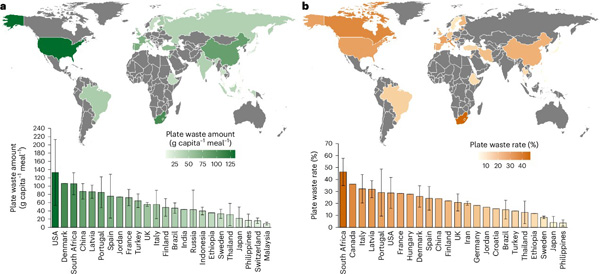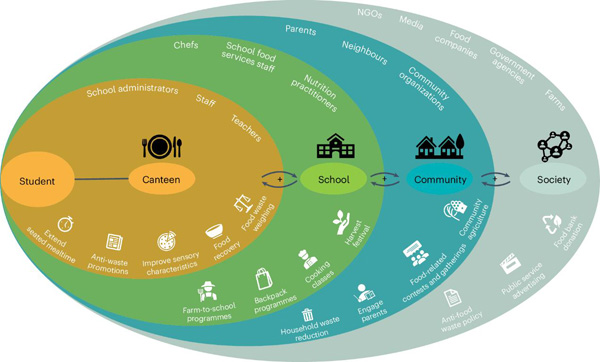
Food loss and waste (FLW) hampers global food security, human health and environmental sustainability. Reducing food waste is crucial for achieving a sustainable agri-food system.
In a new study published in Nature Food, researchers led by Prof. LIU Xiaojie from the Institute of Geographic Sciences and Natural Resources Research of the Chinese Academy of Sciences and Prof. YANG Yi from the College of Environment and Ecology of Chongqing University, proposed a sustainable food education framework to reduce student food waste.
The researchers analyzed the variations of plate food waste in schools based on 291 data points from 29 countries across Europe, Asia, America, and Africa.
They found large differences of plate waste in schools among these countries, ranging from 133 to 9g per capita per meal or 46% to 4% of the meal in terms of waste rate. On the upper end of the spectrum are the United States, Denmark, South Africa and China in terms of the amount of per capita plate waste. On a global scale, this waste embodies ∼150 Mha of cropland and ∼770 MtCO2e of greenhouse gas emissions.
The driving factors of school food waste were satisfaction with sensory characteristics, social norms, lunch duration, menu planning, portion size and gender, according to their study.
The team put forward a sustainable food education system, as the integration of a supportive food environment with food and nutrition education that fosters the acquisition of food skills, nutrition and food systems knowledge, and an appreciation for nature and food workers to decrease the psychological distance between students and foods.
They also estimated the environmental impacts associated with school food waste on a global scale. Their comprehensive analyses suggest the potential for large environmental gains if student food waste could be considerably reduced.

Fig. 1: School plate waste in different countries. (Image by FENG Lei)

Fig. 2: A multiagency, multilevel and multimeasure framework for sustainable food education. (Image by LUO Ruiqi)

86-10-68597521 (day)
86-10-68597289 (night)

52 Sanlihe Rd., Xicheng District,
Beijing, China (100864)

